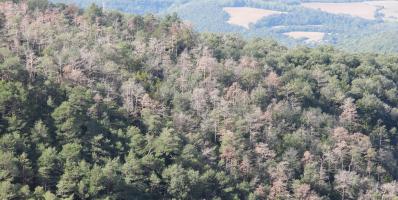Felipe Siqueira Campos
Doctorat en Biodiversitat per la Universitat de Barcelona, amb menció internacional, Cum Laude i Premi extraordinari de doctorat de la Universitat de Barcelona 2017/2018. El 2017 rep el Premi Nacional de l'Associació Espanyola d'Ecologia Terrestre (AEET), per a projectes de recerca en ecologia liderats per joves investigadors. Una de les seves contribucions clau va ser la validació de la utilitat d'un enfocament ecològic i evolutiu per millorar els resultats rendibles als punts calents amenaçats. Del 2018 al 2022 va ser becari de recerca post-doctoral a la Universitat NOVA de Lisboa, com a part d'un projecte d'R+D sobre l'avaluació dels serveis dels ecosistemes i la biodiversitat a Portugal, finançat per la Fundació Portuguesa per a la Ciència i la Tecnologia (FCT).
El seu principal objectiu com a investigador és dissenyar un marc multidisciplinari per als plans de conservació que integrin els beneficis econòmics, els serveis ecosistèmics i els components de la biodiversitat a una escala macroecològica.
Algunes fites científiques:
Campos, F.S., Lourenço-de-Moraes, R., Llorente, G.A., & Solé, M. (2017). Cost-effective conservation of amphibian ecology and evolution. Science Advances, 3(6), e1602929.
Campos, F.S., Lourenço-de-Moraes, R., Ruas, D.S., Mira-Mendes, C.V., Franch, M., Llorente, G.A., Solé, M. & Cabral, P. (2020). Searching for networks: ecological connectivity for amphibians under climate change. Environmental management, 65(1), 46-61.
Campos, F.S., David, J., Lourenço-de-Moraes, R., Rodrigues, P., Silva, B., da Silva, C.V., & Cabral, P. (2021). The economic and ecological benefits of saving ecosystems to protect services. Journal of Cleaner Production, 311, 127551.
Cabral, P., Campos, F.S., David, J., & Caser, U. (2021). Disentangling ecosystem services perception by stakeholders: an integrative assessment based on land cover. Ecological Indicators, 126, 107660.
Lourenço-de-Moraes, R., Campos, F.S., Carnaval, A.C., Otani, M., França, F.G., Cabral, P., & Benedito, E. (2021). No more trouble: An economic strategy to protect taxonomic, functional and phylogenetic diversity of continental turtles. Biological Conservation, 261, 109241.





